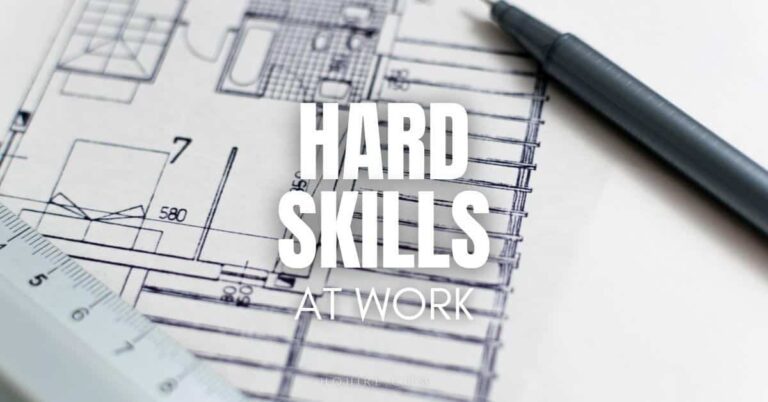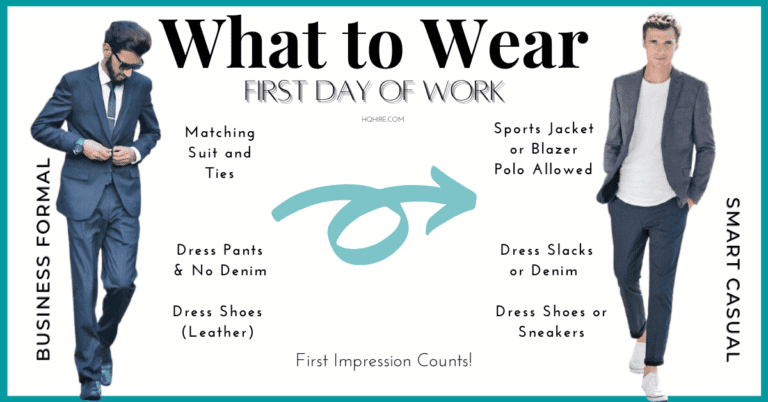This tough job interviews question can be nerve-wracking, one that often trips up candidates is “Tell me about a time you had to make a difficult decision at work.” This question lets employers see how you handle challenges and make choices under pressure.
Preparing a strong answer to this question can boost your chances of landing the job.
It’s a chance to show off your problem-solving skills and decision-making abilities. By sharing a specific example, you can prove you’re capable of tackling tough situations.
Key Takeaways
- Prepare a specific example of a difficult work decision in advance
- Explain your thought process and the positive outcome of your choice
- Show how you learned and grew from the experience
Why Do Employers Ask “Tell Me About A Time You Have To Make A Difficult Decision At Work”
Employers ask this question to learn about your decision-making skills. They want to see how you handle tough choices in the workplace.
Your answer shows if you can:
- Think critically
- Weigh pros and cons
- Take responsibility
- Solve problems
It also reveals your values and what matters to you at work. Employers look for candidates who can make difficult decisions thoughtfully.
This question helps them understand how you might act in future situations. Your response gives insight into your:
- Leadership potential
- Ability to handle pressure
- Communication style
- Teamwork skills
By asking about a real experience, employers get a glimpse of your past performance. This can predict how well you’ll do in the new role.
Common Variations Of “Tell Me About A Time You Have To Make A Difficult Decision At Work”

Interviewers often ask about tough choices in different ways. Here are some common variations:
- “Describe a time when you had to make an unpopular decision at work.”
- “Tell me about a situation where you had to make a quick decision under pressure.”
- “Can you share an example of a challenging ethical decision you faced in your career?”
These questions aim to learn about your decision-making skills.
You might also hear:
- “How do you approach difficult decisions in the workplace?”
- “What was the hardest choice you’ve had to make in your professional life?”
- “Tell me about a time you had to choose between two good options at work.”
The goal is to show your ability to handle tough situations. Be ready with a clear example that showcases your skills.
When preparing, think about times you:
- Solved a complex problem
- Made a choice that affected your team
- Faced an ethical dilemma
- Had to decide quickly with limited information
Your answer should highlight your thought process and the positive outcome of your decision.
How To Answer “Tell Me About A Time You Have To Make A Difficult Decision At Work”

Answering this question well can show your problem-solving skills and decision-making abilities. Here’s a step-by-step approach to help you craft a strong response.
Step 1: Choose a relevant example
Think of a time when you faced a tough choice at work. Pick a situation that shows your skills and fits the job you want. Make sure it’s recent and had a good outcome.
Don’t pick something too personal. Focus on work-related decisions. Maybe you had to choose between two job candidates or decide on a new project direction.
Write down the key points of your story. This will help you remember the important parts when you answer.
Step 2: Set the scene
Start by explaining the situation clearly. Tell the interviewer what was happening and why you had to make a decision.
Be brief but give enough details. For example: “Our team had to choose between two marketing strategies. One was safe but boring. The other was risky but could bring big rewards.”
Show why the decision was hard. Maybe there were pros and cons to both options. Or perhaps you had to balance different needs.
Step 3: Explain your thought process
Talk about how you approached the decision.
- Did you make a pros and cons list?
- Did you ask for advice from others?
Show that you were thoughtful and careful. For instance: “I looked at our budget, talked to my team, and thought about our long-term goals.”
Mention any tools or methods you used. This shows you have a system for making decisions.
Step 4: Describe your decision and actions
Tell the interviewer what you chose to do and why. Be clear about the steps you took to put your decision into action.
For example: “We decided to go with the riskier strategy. I set up daily check-ins with the team to watch our progress closely.”
Show how you communicated your decision. Did you explain it to your team or boss? How did you get everyone on board?
Step 5: Share the results and what you learned
Talk about how your decision turned out. Use numbers if you can, like “Our sales went up by 30%.”
Even if things didn’t go perfectly, find a positive angle. Maybe you learned a valuable lesson. For instance: “While we didn’t hit our target, we learned a lot about our customers.”
End by saying what you’d do differently next time. This shows you can learn and grow from your experiences.
Best Example Answers To “Tell Me About A Time You Have To Make A Difficult Decision At Work”

When answering this question, focus on showcasing your decision-making skills, problem-solving abilities, and leadership qualities. Be honest and specific about the situation, your thought process, and the outcome.
Example Answer For A Recent Graduate
“In my internship at XYZ Company, I had to decide whether to stick with a flawed project plan or speak up about its issues. I knew pointing out problems could upset my team lead.
I chose to voice my concerns respectfully. I prepared a detailed analysis of the plan’s weaknesses and potential solutions.
My team lead appreciated my initiative. We revised the plan together, which led to a more successful project outcome. This experience taught me the importance of constructive feedback and clear communication in the workplace.”
Example Answer For An Experienced Candidate
“At my previous job, I had to decide between two equally qualified candidates for a promotion. Both had strong skills and were well-liked by the team.
I evaluated their performance records, leadership potential, and fit for the new role. I also consulted with other managers to get different perspectives.
In the end, I chose the candidate who showed more initiative in taking on extra projects. To support the other candidate, I created a development plan to help them grow their skills.
This decision improved our team’s performance and motivation. It showed me the importance of making tough choices while still supporting all team members.”
Example Answer For Applying For A Leadership Position
“As a project manager, I faced a difficult decision when our main supplier suddenly doubled their prices. We had to choose between absorbing the cost, finding a new supplier, or increasing our prices.
I gathered data on our profit margins, customer price sensitivity, and alternative suppliers. I held meetings with different departments to understand the impact of each option.
We decided to negotiate with our current supplier while also exploring new options. This balanced approach allowed us to maintain quality and minimize price increases.
The experience taught me the importance of considering all stakeholders when making big decisions. It also improved my negotiation and strategic planning skills.”
Example Answer For An Industry Change
“In my previous role in finance, I had to decide whether to approve a loan for a struggling small business. The company showed potential but had financial difficulties.
I thoroughly reviewed their business plan and financial statements. I also met with the owners to understand their strategy for turning things around.
Ultimately, I approved the loan with stricter terms and a mentoring program. This decision was risky but aligned with our bank’s mission to support local businesses.
The company successfully repaid the loan and is now thriving. This experience showed me how to balance risk and opportunity, a skill I believe will be valuable in my new industry.”
Example Answer For A Career Change
“In my previous career as a teacher, I had to decide whether to fail a student who was struggling due to personal issues. The student was bright but hadn’t completed enough work to pass.
I met with the student and their parents to understand the situation. We discussed the consequences of failing and possible solutions.
Together, we created a plan for the student to complete missing work over the summer. This decision gave the student a chance to succeed without compromising academic standards.
This experience taught me how to make tough decisions while still showing empathy. I believe these skills will be valuable in my new career in human resources.”
Join over 11,000+ achievers who are committed to achieving their career goals!






